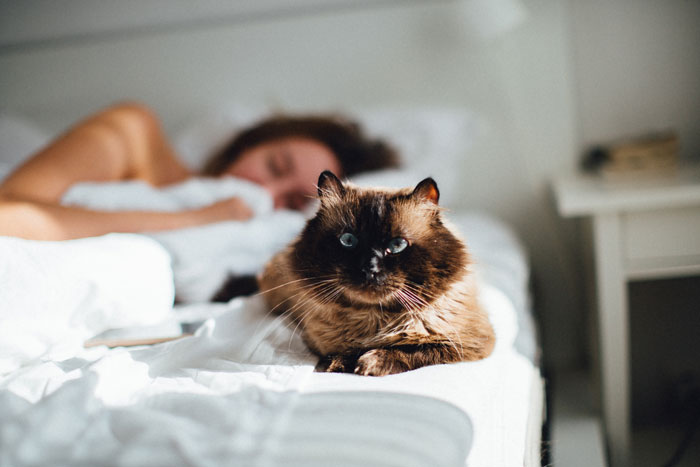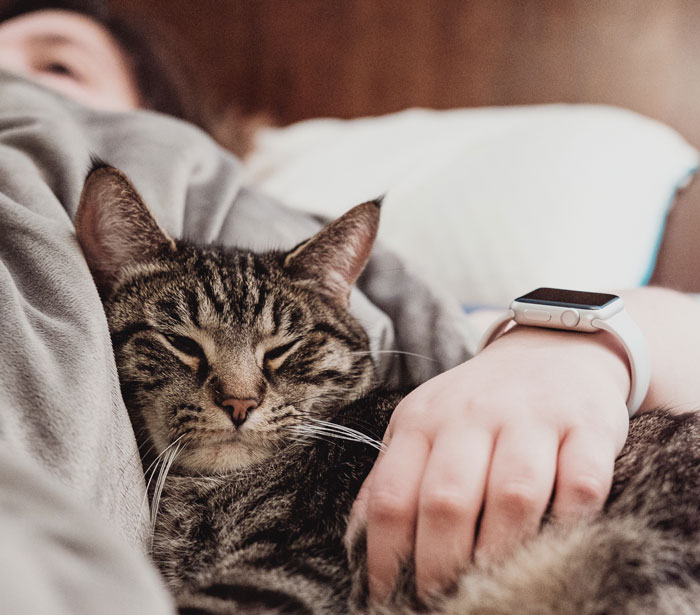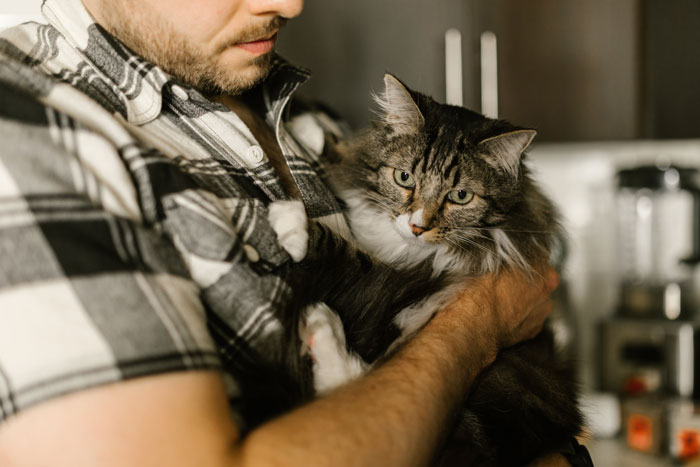Many cat owners have observed their feline friends displaying unusual behavior when they themselves are feeling under the weather.
This raises the intriguing question: Can cats sense when their owners are sick, and if so, how do they react?
We’ll dive into the topic of feline intuition and explore whether cats possess the ability to detect illness in humans.
- Cats may sense illness in humans through smell and behavior changes.
- Cats exhibit increased attention when owners are unwell - a form of empathy.
- Cat owners should note pets' behavior for signs of their own health changes.
- Further research is needed to substantiate claims of cats detecting illness.
The information provided herein is for informational purposes only. Please refer to our disclaimer for more details..
- Can Cats Sense When Their Owners Are Sick?
- How Do Cats Sense Illness in Humans?
- Can Cats Detect Diseases in Humans, such as Cancer?
- Common Behavioral Changes in Cats When Their Owners Are Sick
- How Can Owners Interpret Their Cats’ Sensitive Reactions to Illness?
- Cat Psychology: Maybe Your Cat Knows You Better Than You Think
Can Cats Sense When Their Owners Are Sick?
Intuition is a powerful element. It’s a common belief among cat owners that their pets possess the innate ability to sense when their owners are unwell. Many anecdotal accounts suggest that cats may indeed exhibit unusual behavior in the presence of a sick owner.
Some cat owners have reported that their feline companions become more attentive, often staying by their side and displaying increased affection. This has led to the speculation that cats can pick up on subtle cues and changes in their owner’s body language and scent, indicative of illness.
Image credits: Adam Kuylenstierna
On the other hand, it’s essential to consider whether cats react differently to their owners with chronic illnesses than those with temporary sickness.
Can cats differentiate between short-term and long-term health issues in their owners, and if so, what are the observable differences in their behavior?
How Do Cats Sense Illness in Humans?
One factor contributing to the belief that cats can detect illness in humans is their remarkable olfactory abilities. Cats have a highly developed sense of smell, with an olfactory system far more sensitive than humans.
This heightened sense of smell allows them to pick up on changes in the body’s hormonal and pheromonal cues, which can indicate a shift in their owner’s health.
Additionally, anecdotal accounts and emerging scientific evidence suggest that cats may exhibit specific behaviors that align with their ability to sense illness in humans.
Some cat owners have reported that their pets display increased attentiveness, sniffing, or even gently nudging unwell areas of the body. This raises the question of whether cats’ olfactory and sensory abilities contribute to their capacity to detect illness in their owners.
Can Cats Detect Diseases in Humans, such as Cancer?
There is growing interest in the potential of cats to detect human diseases, including serious illnesses such as cancer. While there is limited scientific research on this topic, there have been specific instances where cats have reportedly alerted their owners to health issues.
These accounts have sparked curiosity about the accuracy and reliability of cats in sensing specific diseases in humans and whether there are ways to harness this ability for early detection and intervention.
Exploring whether cats can detect diseases in humans raises questions about the extent of their innate intuition and the potential implications for healthcare. Are there specific signs that suggest cats can detect diseases such as cancer in humans, and if so, how can we interpret and validate their behaviors?
Common Behavioral Changes in Cats When Their Owners Are Sick
When their owners are sick, cats may exhibit a range of behavioral changes that are indicative of their sensitivity to illness.
One notable observation is that cats can become more clingy to their sick owners, seeking to stay close and provide comfort. This heightened level of attention and affection can be interpreted as a form of empathy and care from the feline companion.
Image credits: Chris Abney
Furthermore, there is speculation about whether cats can sense impending death or severe health deterioration in their owners.
Some accounts suggest that cats display changes in their facial expressions or body language when their owners are seriously unwell, prompting questions about the depth of their understanding and awareness of human sickness.
How Can Owners Interpret Their Cats’ Sensitive Reactions to Illness?
For cat owners who suspect that their cats are sensing illness in them, it’s essential to consider how to interpret and respond to their pets’ behaviors.
If a cat becomes notably more clingy or attentive, it may indicate they are picking up on changes in their owner’s body language or scent. In such cases, owners may want to observe their own health more closely and seek medical advice if necessary.
Additionally, there may be moments when a cat’s sensitive reactions align with genuine health concerns, prompting the question of whether veterinary advice should be sought if cats act differently around their sick owners.
Image credits: RDNE Stock project
This raises the importance of understanding how to recognize and interpret subtle cues from cats, particularly regarding health and well-being matters.
Cat Psychology: Maybe Your Cat Knows You Better Than You Think
In conclusion, the belief that cats can sense when their owners are sick is a fascinating topic that continues to intrigue owners of cats and researchers alike.
While a significant amount of anecdotal evidence suggests that cats may possess a remarkable ability to detect illness in humans, further scientific investigation is required to substantiate these claims.
Understanding the nuances of feline intuition and their capability to sense illness in humans can open up new avenues for research into the potential applications of cats’ innate abilities in healthcare.
Whether it’s detecting diseases, providing emotional support, or offering companionship, cats’ unique bond with their owners and their incredible sense of smell present a captivating area for exploration and discovery.
Poll Question
Thanks! Check out the results:
1Kviews
Share on FacebookExplore more of these tags
Absolutely. Storytime! I was in a bad car accident way back when. My friends picked me up from hospital ER, and took me home with them. Banged up, bruised, cracked ribs, but didn't need hospital stay. My friends went out to get some food. Their curmudgeon of a cat, who usually avoided being touched, growled, etc.... that silly cat came up to me, all nice, purring, and curled up on my lap. My friends come back home, and are speechless at this furry lap warmer. I just shrugged (painfully) and said "he knows" LOL.
Absolutely. Storytime! I was in a bad car accident way back when. My friends picked me up from hospital ER, and took me home with them. Banged up, bruised, cracked ribs, but didn't need hospital stay. My friends went out to get some food. Their curmudgeon of a cat, who usually avoided being touched, growled, etc.... that silly cat came up to me, all nice, purring, and curled up on my lap. My friends come back home, and are speechless at this furry lap warmer. I just shrugged (painfully) and said "he knows" LOL.

 Dark Mode
Dark Mode 

 No fees, cancel anytime
No fees, cancel anytime 





















































6
1